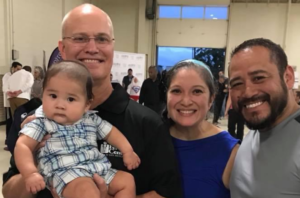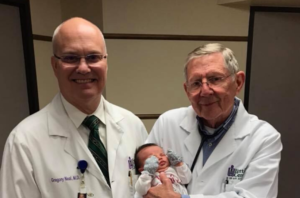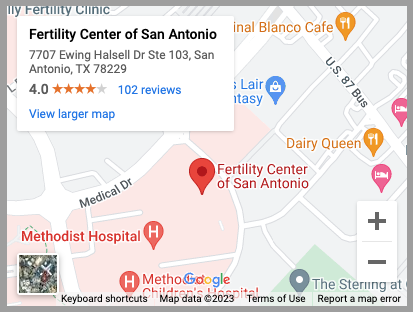Discover Your Path to Parenthood Today.
What Causes Recurrent Miscarriage?
Losing a pregnancy is an emotionally trying experience, and patients who have experienced recurrent miscarriage are often unsure of their options. Recurrent miscarriage is defined as two or more sequential pregnancy losses before 20 weeks, and it may be caused by a variety of factors, including the patient’s age, anatomical abnormalities, genetic issues, or lifestyle habits. It is estimated that 50-75 percent of recurrent pregnancy loss cases are often unexplainable. However, the doctors at Fertility Center of San Antonio in San Antonio TX, have over 30 years of experience improving outcomes of future pregnancies, even in cases when there is no apparent cause for miscarriage. Our team is committed to helping you achieve a healthy pregnancy, and we can use our extensive resources to help you carry a pregnancy to term.
Anatomic Factors
Certain anatomic abnormalities within the uterus can contribute to recurrent pregnancy loss, including:
- Uterine septum
- Fibroids
- Polyps
- Scar tissue
- Structural issues (double or divided uterus)
At our center, we have advanced diagnostic tools to determine whether anatomical issues are contributing to pregnancy loss. If this is the case, our doctors can plan effective treatment.
Genetics
There are a variety of genetic factors that can contribute to recurrent pregnancy loss, including chromosomal abnormalities, egg and sperm abnormalities, and other undiagnosed genetic deficiencies and diseases, such as:
- Hormonal deficiency
- Uncontrolled diabetes
- Thyroid disease
Age can also contribute to chromosomal errors and may result in miscarriage. However, there are several chromosomal disorders that are independent of age, including Trisomy 18 and translocation, which can increase your risk of pregnancy loss as well.
Our doctors have over 30 years of experience improving outcomes of future pregnancies, even in cases when there is no apparent cause for miscarriage.
Undergoing genetic testing, PGS and IVF (in vitro fertilization) can increase your chances for a positive and healthy pregnancy.
Immunological Factors
Your immune system produces antibodies to combat harmful bacteria and diseases within your body. However, some antibodies can work against you, especially during conception, such as antinuclear antibodies, blocking antibodies, natural killer cells, and anti-thyroid antibodies.
One particular antibody, known for causing antiphospholipid syndrome (APLS), can interfere with the development of the fetus. Although the exact cause for miscarriage is not always well understood in cases where APLS is identified, it is believed that these antibodies cause blood clots within the placenta, preventing adequate blood supply to the uterus and fetus. We offer treatments for this condition which have been shown to improve live birth rates in subsequent pregnancies.
Lifestyle
Making certain lifestyle adjustments can improve your chances for a positive pregnancy. If you have experienced multiple miscarriages, you may consider minimizing or completely eliminating:
- Smoking
- Alcohol
- Drug use
- Excessive consumption of caffeine
- Stress
- Poor nutrition
- Obesity
- Exposure to harmful chemicals or x-rays
At our center, we are dedicated to personalized care, and can review your unique case in order to make recommendations that are suitable to you. It is our desire to help you achieve a healthy pregnancy and delivery.
Contact Us Today
If you have battled recurrent miscarriage and are unsure as to how to proceed, our doctors at Fertility Center of San Antonio are ready to help. It is our goal to ensure you feel important and cared for on your journey to starting a family. We invite you to schedule a consultation with one of our highly trained specialists today. You can reach us online or by calling (210) 692-0577. You can also find answers to our most frequently asked questions about the fertility evaluation process on our FAQ page.











